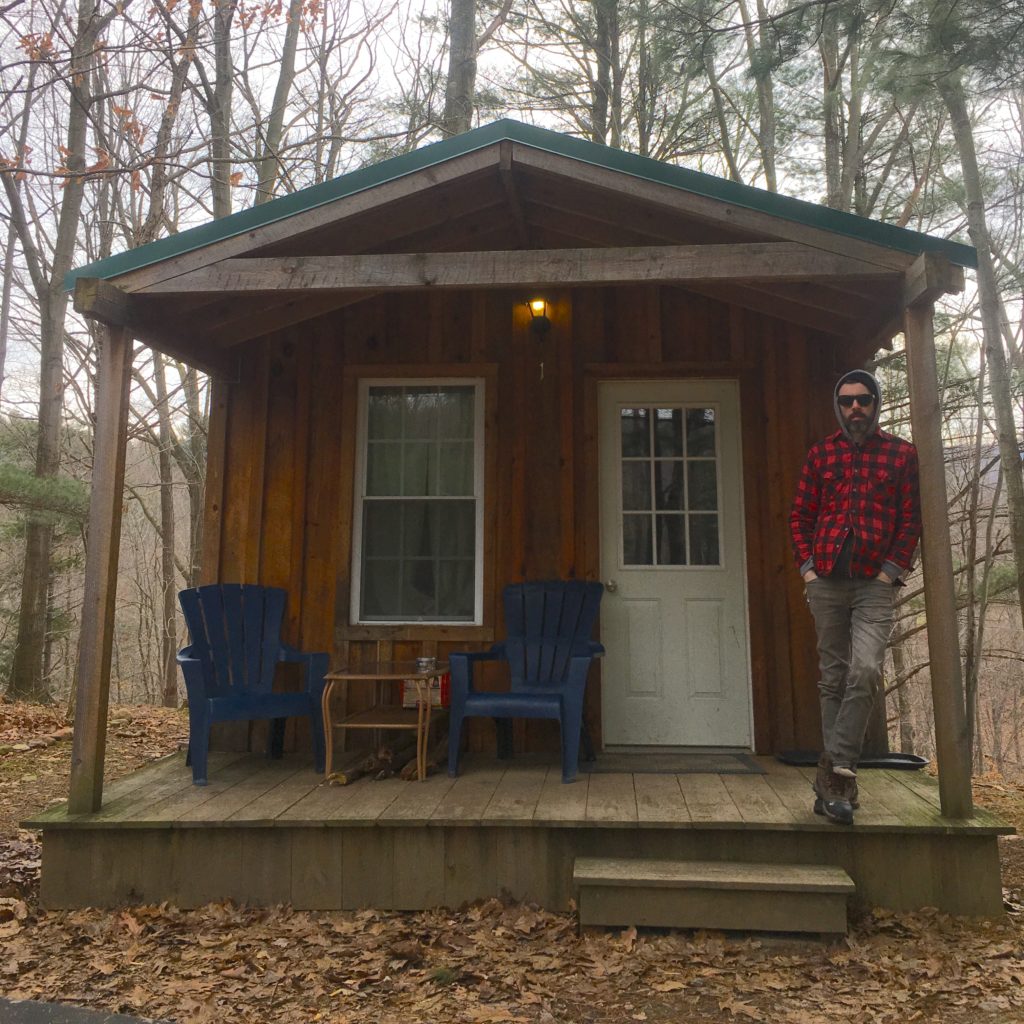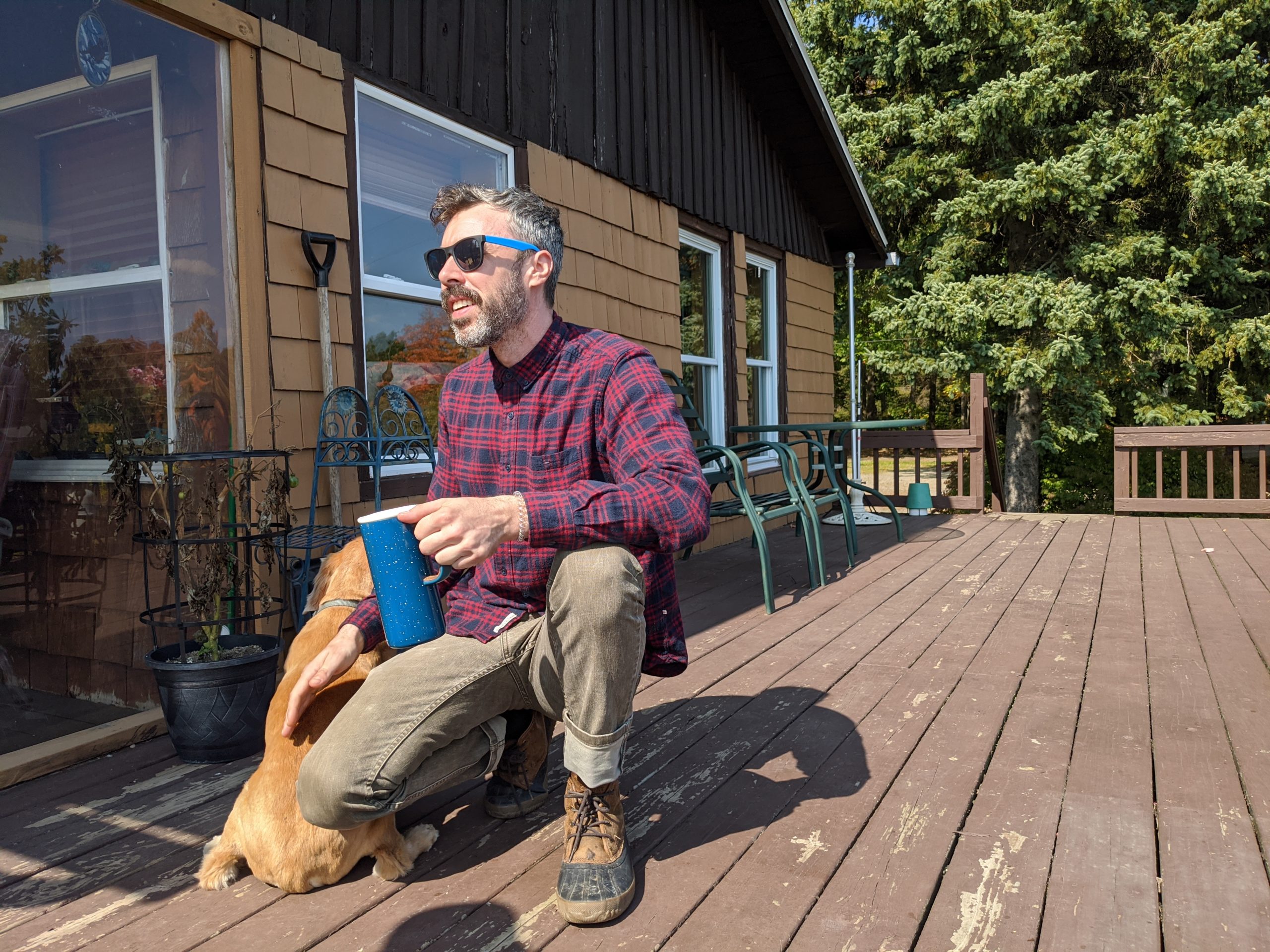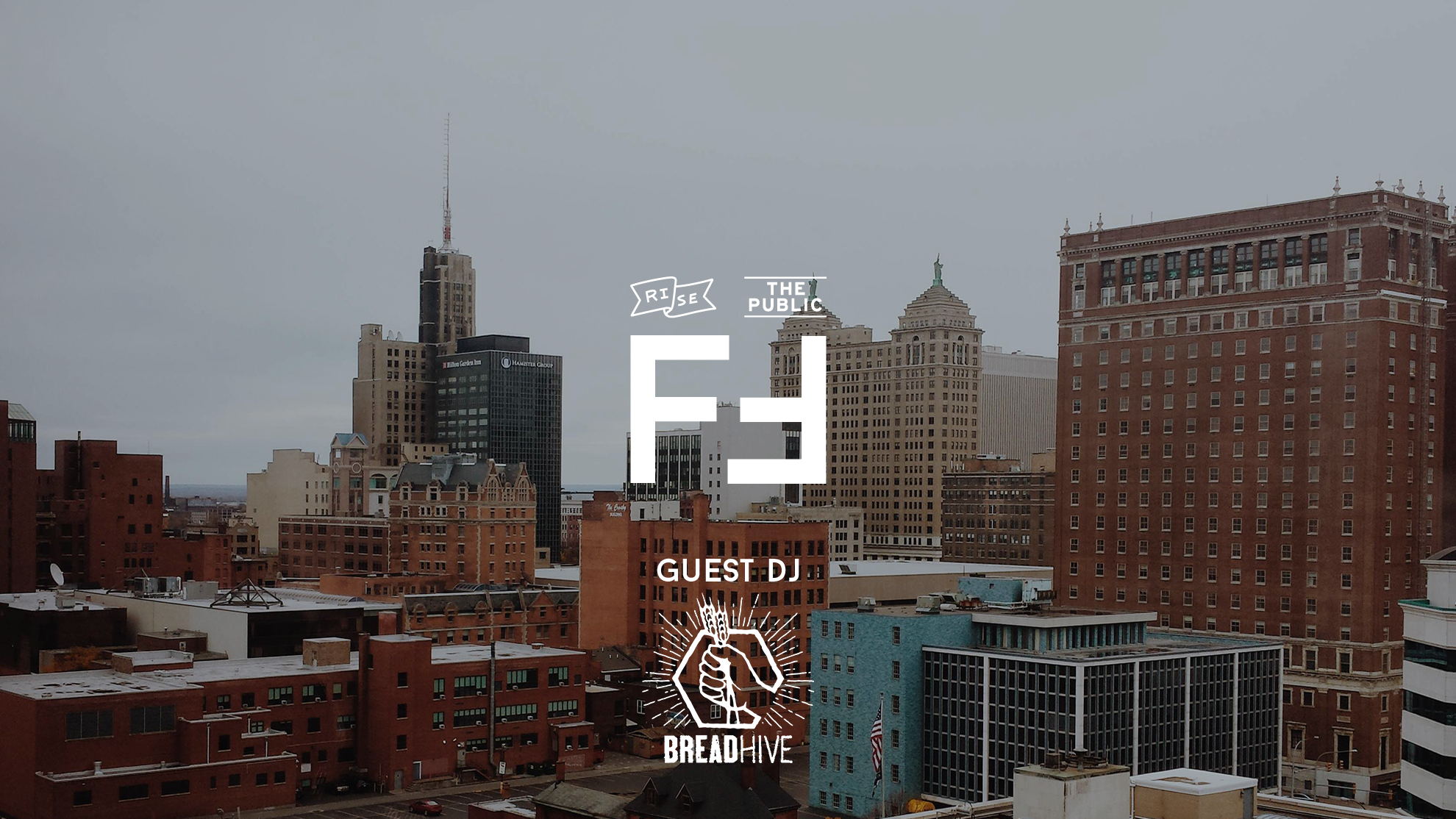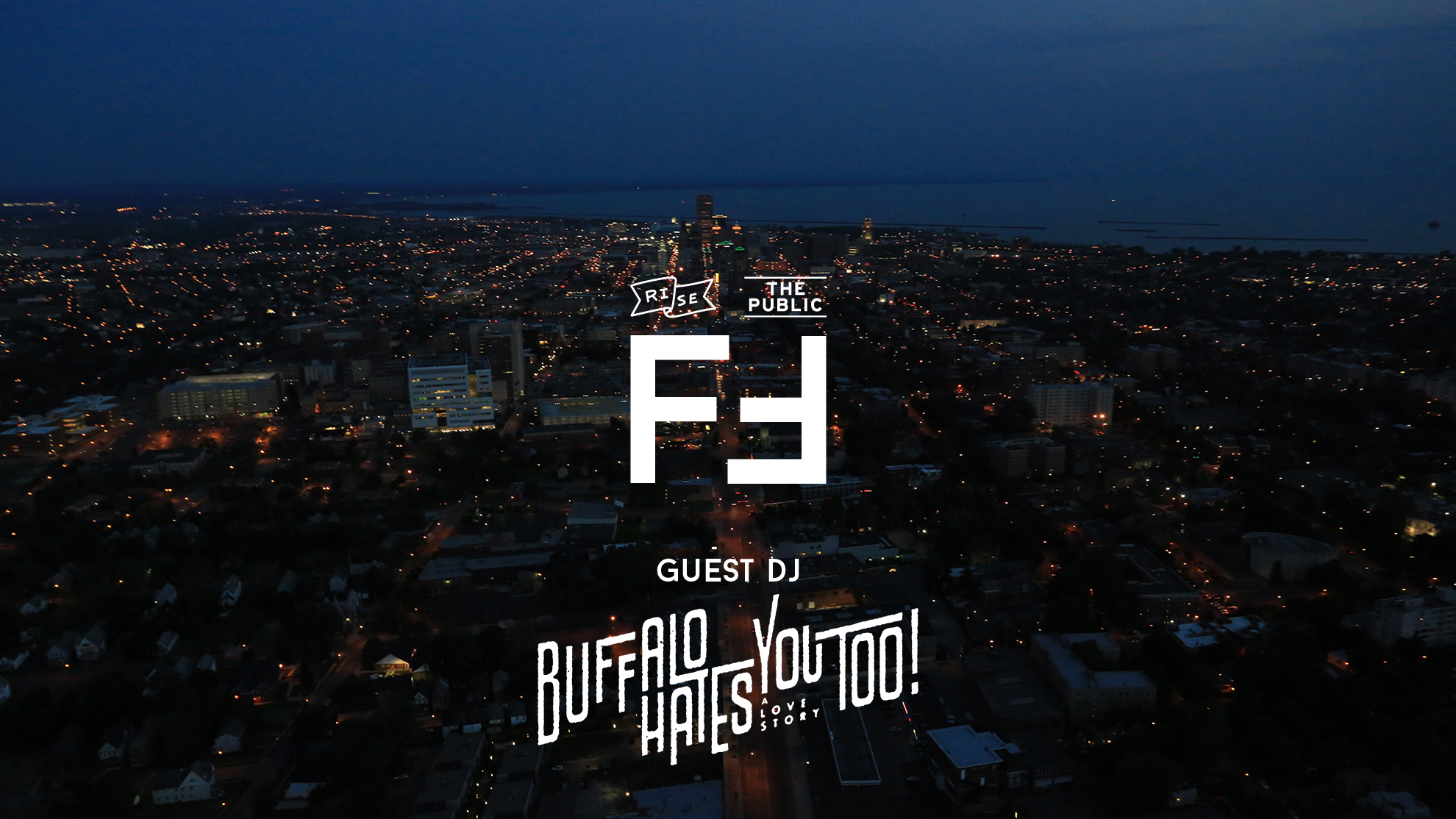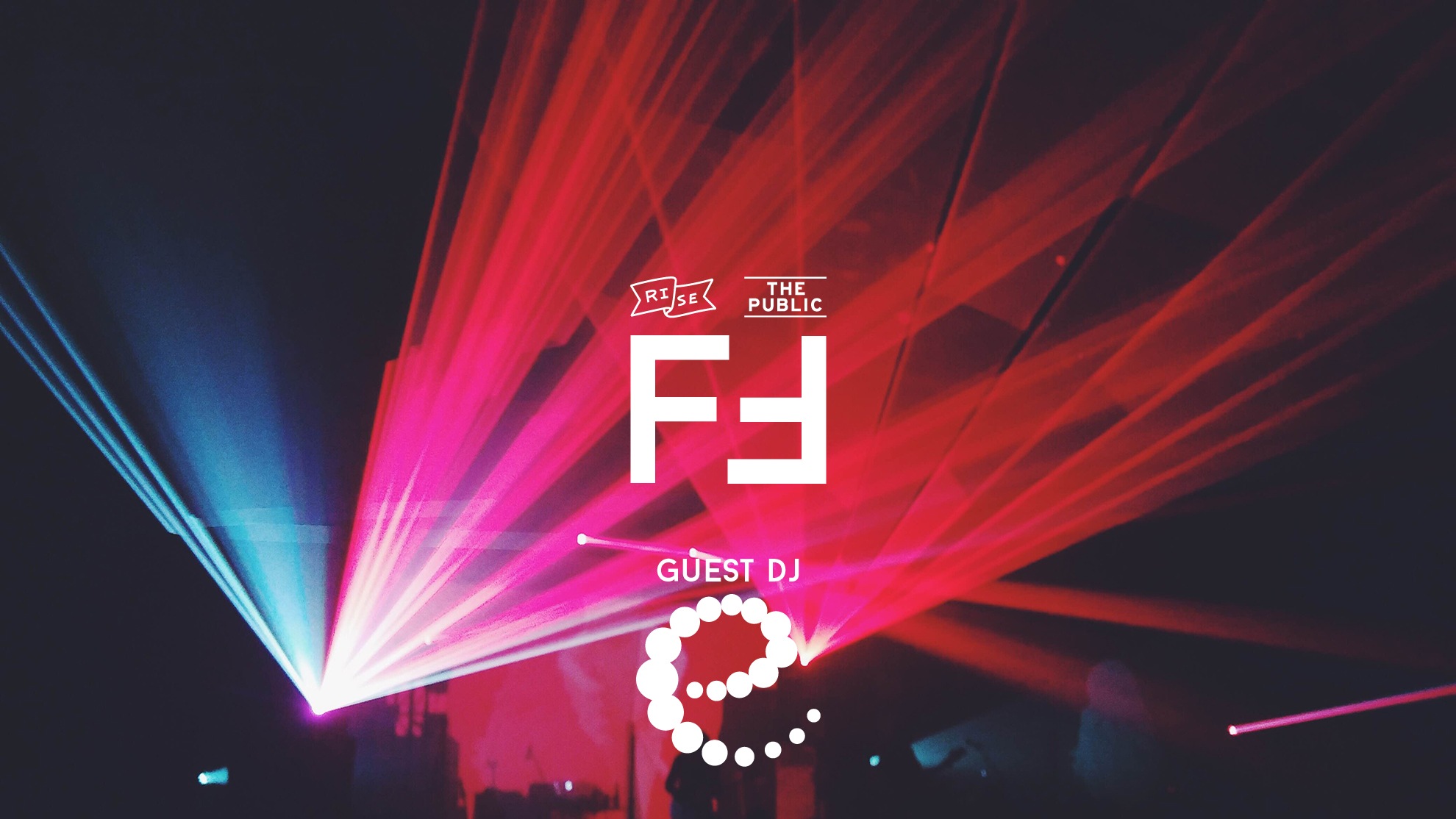In the summer of 2018, the music video for “SCRATCH” was tearing through my feed from local artist Hop Hop. Beautifully shot all over the city, and the beat hit hard. Our team subsequently became obsessed with Hop Hop’s album and produced an episode of our podcast, LIFTED about her style.
About 44 seconds into that video, its director and editor, Brandon Schlia makes a brief and funny cameo. Schlia’s Steak & Cake Records label produced Hop Hop‘s album, along 194 others here in Buffalo. 195 albums! Not busy enough, Schlia also has a film project that’s been included in this year’s Buffalo International Film Festival.
Ever the fans of indie everything, we wanted to chat more his beginnings, motivation, and numerous creative projects. He provided samples from 10 different genres that Steak & Cake has produced, and we’ll mix them in throughout the interview.
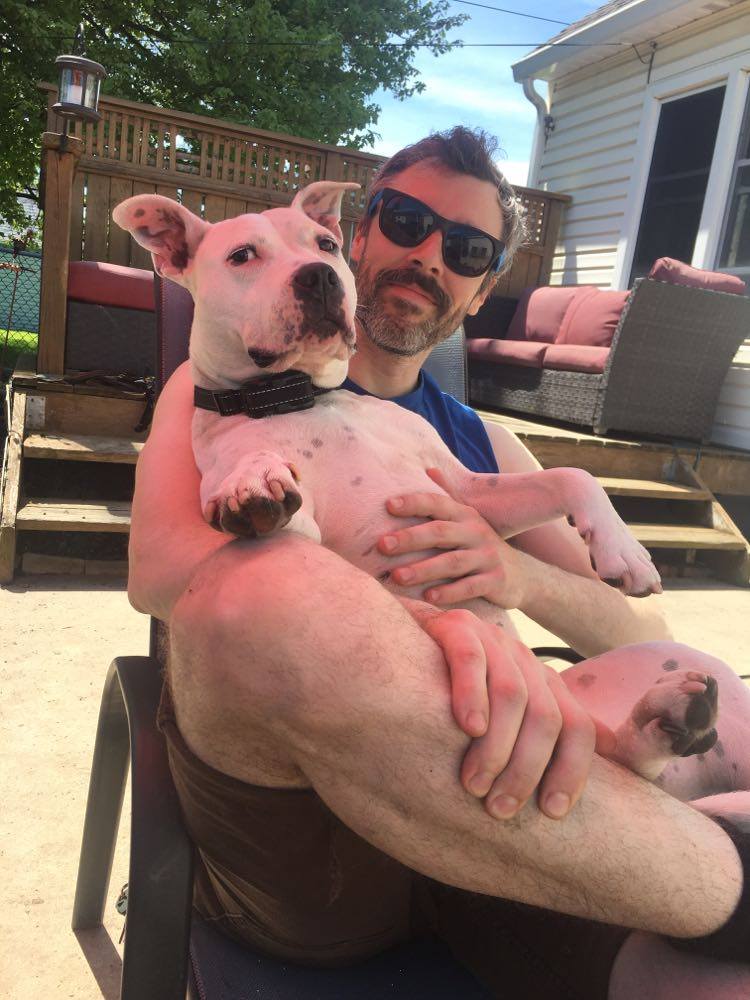
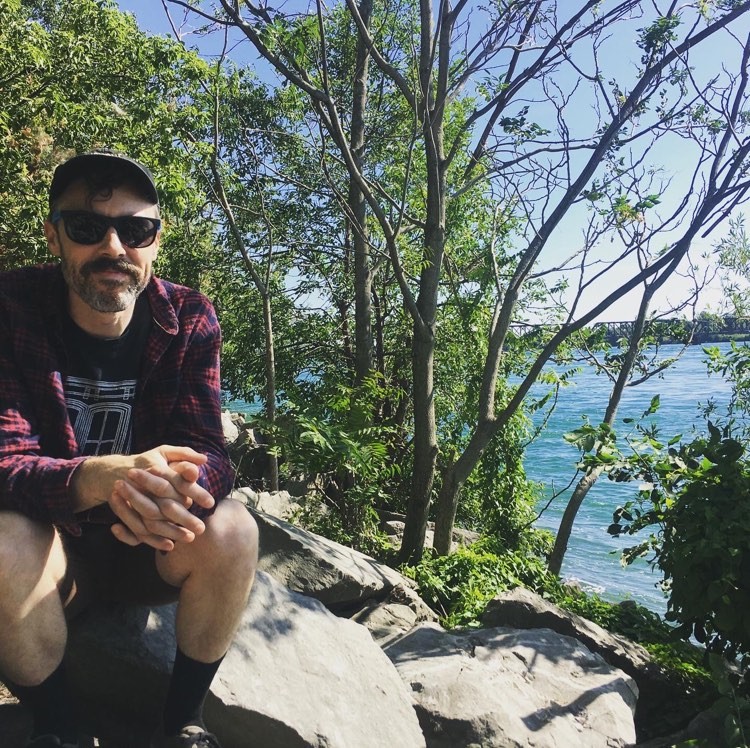
How’d you get started?
I was born in Amherst, raised in Tonawanda and moved to Batavia by the time I was 10. Before the move I was into sports and comic books, music was a peripheral thing- it showed up as 97 Rock (Dad) and Q102.5 (Mom). I do remember getting really into the songs “Prayer for the Dying” by Seal and “Always Be My Baby” by Mariah Carey on my own, infectious hooks even for a 10 year old.
DANCE POP
Moving to Batavia sucked but there were a few friends that kind of made up for it. Adam Burnett got me into the Canadian version of The Edge (102.1) and I got him into 95.1 The Nerve – so we spent a lot of time playing Goldeneye and listening to grunge and alt-rock. One day he bought a bass guitar and played the song Spit on a Stranger by Pavement on it, I was entranced.
I had already convinced my parents to buy me a guitar, but I gave up after a few months. I was interested in trying drums but I didn’t want to have a repeat disappointment so I never asked for a kit. Then, one Christmas, I walked into the basement to find a drum kit setup and waiting for me. I sat down to try them out and, weirdly, I already sort of knew how to play them. That natural ability helped keep me invested and practicing.
What happened next is kind of hard to explain. My Dad used to call Batavia “Little Seattle” because, from 1997-2005, there was an unrealistic amount of talented people making music together. Some guys a few years ahead of me had put together a production company and local bands gained the opportunity to perform in battles, outdoor festivals and coffee shops. Rob Credi and Derek Guibe were my first real life example that someone could make this work.
POST PUNK
My freshman year of high school, a group of us managed to convince our Career Counselor, Ms. Pacino, to help us find a place to hold a more consistently recurring option for all these bands to perform. She connected us to the YWCA and they agreed to let us use their rec room as long as there was one parent chaperone from each band on the bill. So, we put together one show a month and ran the whole operation ourselves: booking, promoting, sound, admission. It was a crash course and it gave me the confidence to continue that work today.
You’re still performing today – in what aspects?
I’m just barely still performing today. Usually it’s more of a sit-in role, like playing drums in the Grits video for the Rise Quarantine concert. I don’t get as much out of it as I used to. I’m happier performing on recordings for others and exploring ways to craft the sounds they want. From the very beginning, I’ve tried to model my label after Stax Records– I get to be all the session players rolled up into one. The artists come in and I get to fill in the instrumental gaps, that’s a rewarding process.
HIP HOP
So, even though I don’t feel a drive to perform, I was recently warming up to the idea of being in a band that actually played shows, it just required a few things that have been notoriously difficult to find: a drummer I trust, a songwriter that can do the heavy lifting and a background role that I can be creative in. More than anything, I genuinely enjoy the people involved, they’re dear friends that happen to be amazing musicians and that’s rare, but that’s the recipe.
How did you evolve to the producer side?
Throughout high school and college I was in bands and playing shows a lot, I had lofty ambitions of “making it”. When I was 22 I fronted $5,000 to make an album but the band quit halfway through the process and it was never released. That was the point where I started to shift my focus, although I’d continue playing in bands for a while longer, I wanted more control and less reliance on studios or producers to get something done. Right around this time was when garageband came into play. With that program and one cheap USB microphone I could do it all myself. I didn’t have to pay an hourly rate in a studio and hope that the engineer and producer understood what I wanted. Now I could toil for 10,000 hours with nothing but the cost of beers to account for. It gave me the space to learn what a producer does.
GARAGE ROCK
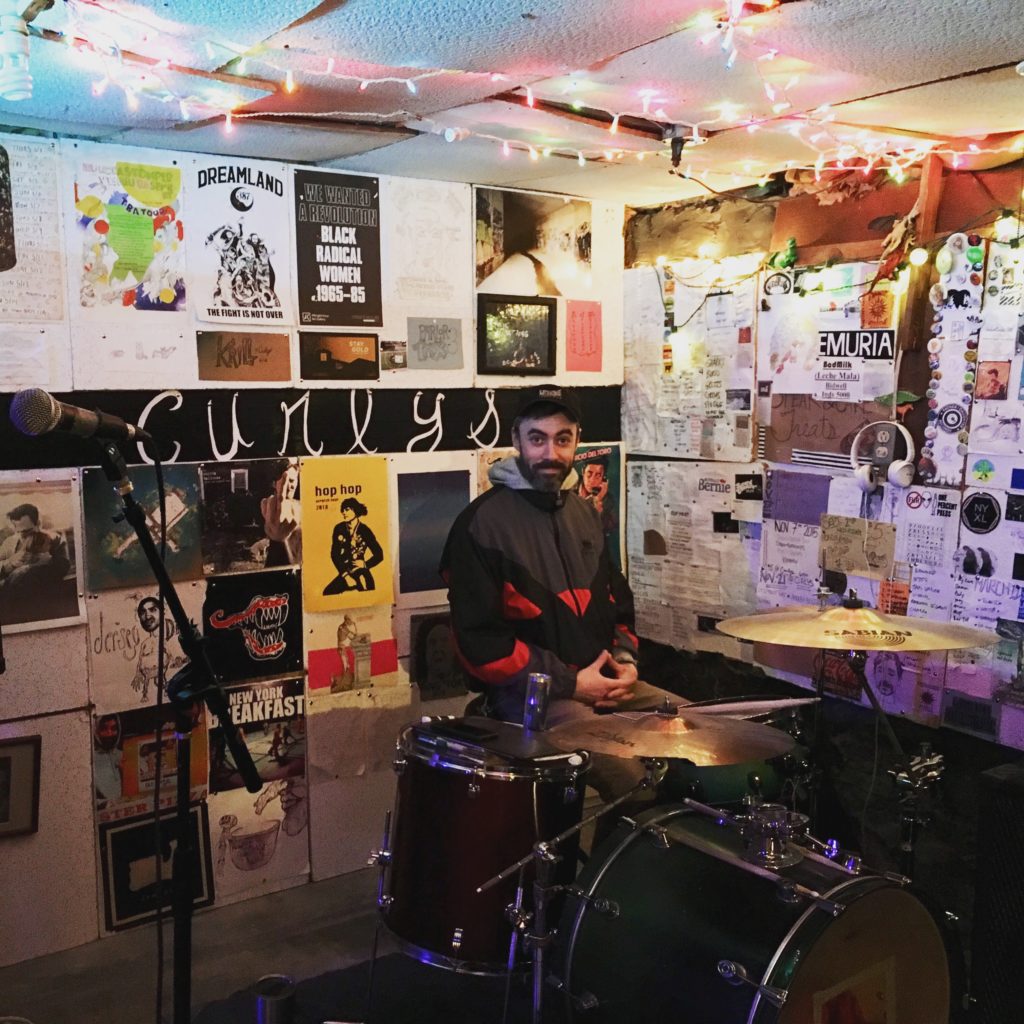
What is the mission of Steak & Cake? When was it formed? What assets do you have at your disposal?
With hindsight it’s easy to see that the label’s mission is to foster musicianship in the community but, when I actually started it, things were a lot less clear. In 2011 I was going to Canisius for my MA in Mental Health Counseling and it sucked, it wasn’t for me. Two good friends had just moved to Cincinnati and as we were keeping in touch, they shared some music they’d been working on, conceding they had no future plans to release it. Things started to stir in my brain…
As perfect as it was for Garageband to appear right when I needed it most, the same is true for bandcamp.com. The site debuted in 2008 and by 2011 it had developed into the perfect vehicle for a label, most notably, the option to offer releases on a pay-what-you-want basis. I was so tired of money ruining music, I really identified with this. That’s why, to this day, 99% of the catalog is donation based and only accessible on bandcamp.
ELECTRONIC
It is also true that the label was like an acquaintance, one that could introduce you to people you wanted to work with, in that it was for a “reason” and could add a form of credibility that isn’t there when you dm someone and say “wanna collab?” I also happened to be an extremely affordable, admittedly unusual, recording option. At that time there were places like GCR ($$$$) then maybe Audio Magic ($$$) and then…my studio in the basement of a liquor store for $10/hr, maybe less, maybe nothing.
After a few years of focusing only on making music, it occurred to me that I was building a network that could have more of an impact on the greater good if I scaled up. So we did fundraiser shows for the Buffalo Public Schools Music Program, I led an after school rock band workshop for middle school aged refugees, I booked shows for touring bands, organized a yearly 21 and under Battle of the Bands series, taught drum lessons and acted as a mentor to an aspiring audio engineer. As the label approaches the decade mark, it’s less about making the music and more about supporting the kids that are looking for a way into this community.
INDIE ROCK
What are some long-term goals for the label, studio?
I always said that I would close the label after ten years because, when it started, I couldn’t imagine it existing for that long so it seemed like a nice bookend even if it was arbitrary. Now that it’s actually creeping up, I can’t imagine letting go, at least not completely. I think there are big things on the horizon for the work I’ve been doing, I believe it’s about to scale up again and take a new shape. There aren’t concrete details now, but I’m hopeful that everything I’ve learned so far can continue to be stretched to help even more people get involved in making music.
INDIE POP
How many projects have you kicked off in earnest? And how many are currently active these days?
I’m so happy to announce that my film “Maxine” was accepted into the Buffalo International Film Festival and will play at the Dark Alley Drive-In on October 10th!
Posted by Brandon Schlia on Thursday, October 1, 2020
Headshrinker Studios – Music is always happening but recently, film has taken over as my main ambition. I’d love to be making more films more often but they’re a lot harder to orchestrate than a one-night recording session. At this point I’ve completed 10 shorts and I have 3 more half-written for when the pandemic clears. If you want to check them out, please consider donating to my Patreon – its like a $5, month-long rental of my full library (and if you forget to cancel after the month just let me know and I can do a refund). https://www.patreon.com/headshrinkerstudios
SHOE GAZE
21 and Under Battle of the Bands – In this series, young performers take the stage in the Fall and again in the Spring, battling against other bands to win that bracket. Those winners face off in the grand finale in the Summertime. We were in our inaugural year and had plans for the finale to happen at Asbury Hall but unfortunately we were forced to put this on hiatus. In the meantime, please check out steakfm.bandcamp.com to hear the interviews I conducted with these brilliant young minds.
Bands & Monikers – The thing I’ve worked on most during quarantine has been a project called Zandon. It’s heavily inspired by Mount Kimbie and Dimlite and you can get a taste for what that’s like by checking out the music video trilogy. If Zandon is one half of my musical style, the other half is Helmsley. I released a full length last year that veered into more experimental territory and I have another one set for this Fall that’s more conventional songwriting. And last but not least, I’m playing bass in a band called Clump with Jacob Smolinski (of Wylie Something, Local Onlys) and Kameron Plotner (of Halo Nellie, Olmsted). One of the most depressing parts of the pandemic has definitely been the fact that I don’t get to see these guys once a week.
CHAMBER POP
POST JAZZ
